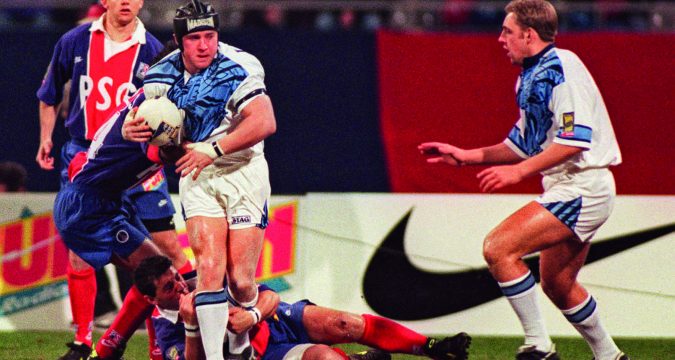 Fifty one weeks after the summer rugby and mergers announcement that rocked British Rugby League to its core, Super League kicked off on Friday 29 March 1996 when Paris St Germain beat Sheffield Eagles.
As Super League’s big kick-off approached, much of the anger had subsided as on-field matters took priority over the arguments and bitterness.
Fifty one weeks after the summer rugby and mergers announcement that rocked British Rugby League to its core, Super League kicked off on Friday 29 March 1996 when Paris St Germain beat Sheffield Eagles.
As Super League’s big kick-off approached, much of the anger had subsided as on-field matters took priority over the arguments and bitterness. Super League 25th Anniversary: The big kick off in Paris
 Fifty one weeks after the summer rugby and mergers announcement that rocked British Rugby League to its core, Super League kicked off on Friday 29 March 1996 when Paris St Germain beat Sheffield Eagles.
As Super League’s big kick-off approached, much of the anger had subsided as on-field matters took priority over the arguments and bitterness.
Fifty one weeks after the summer rugby and mergers announcement that rocked British Rugby League to its core, Super League kicked off on Friday 29 March 1996 when Paris St Germain beat Sheffield Eagles.
As Super League’s big kick-off approached, much of the anger had subsided as on-field matters took priority over the arguments and bitterness. 